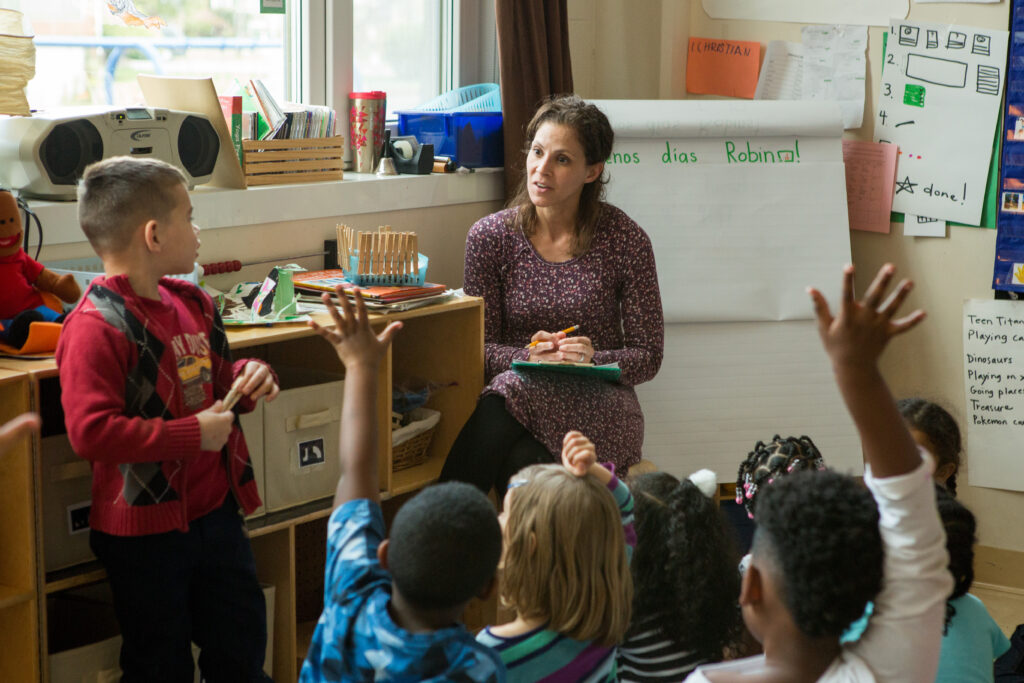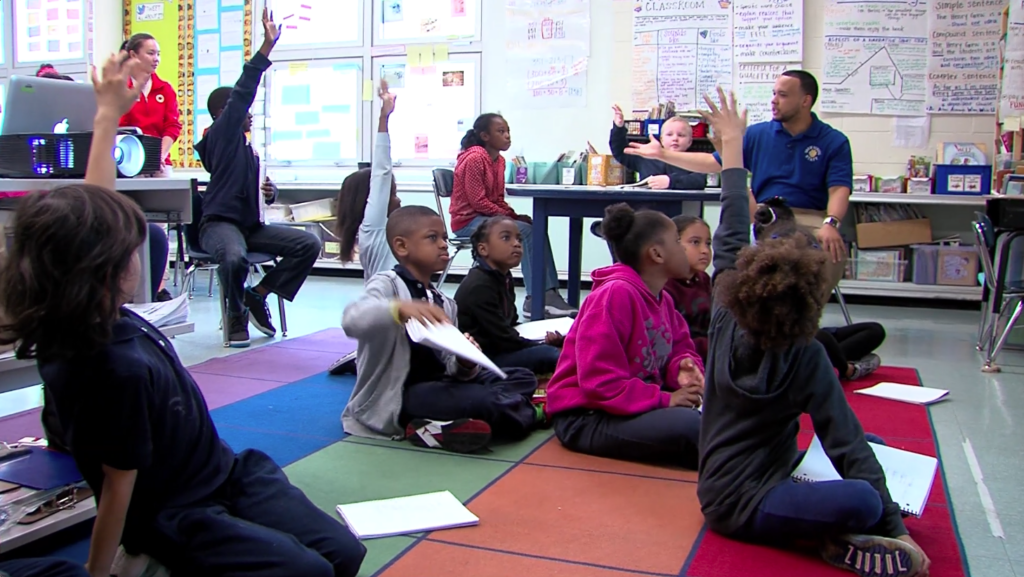Which Students Get Which Questions? Using a Teacher Reflection Tool to Find Out
February 14, 2024
“I feel like I keep track of who participates and try to make sure everyone is participating in some way. But I never really thought to keep track of who’s getting those questions that promote higher order thinking and who’s getting a question that is basically rephrasing or restating what a partner said… I think if I did keep track, I don’t think it would be as equitable as I think it is.”
– Grade 1 Teacher

Whole-class discussions provide opportunities for “students to express their ideas, to revise and build on them, to have others respectfully listen to and engage with their ideas, and to be seen as mathematical thinkers who make meaningful contributions to classroom conversations.” (Russell et al., 2023, p. 5) However, not all students feel invited into or participate equally in such discussions. What a teacher does during a discussion can powerfully impact whether and how a student participates.
In thinking through what it takes for there to be equitable participation in such discussions, our team worked with a group of educators to field test and revise a tool designed to help teachers reflect on and strive for more equitable participation in whole class conversations. One big idea that surfaced in the course of that work: reflecting on participation in discussions involves not only recognizing who is and is not engaging, but also paying attention to instructional decisions that may affect students’ participation. For this reason, there are three different areas of focus in the Teacher Reflection Tool for Whole Class Discussions:

Some of the teachers in the group told us that, while they already try to pay attention to who is and isn’t participating in discussions, they have not reflected much on the instructional decisions they make that may affect participation. As they used the tool, the teachers shared stories about what they were learning. For example, Caroline used the Area of Focus: Questions Posed to Students which asks teachers to collect data and reflect on what types of questions they are asking during discussions (Open-Ended, Closed or Non-Content) and on which students they are calling on to answer these different types of questions. Caroline told us what she expected to find:
Originally when I saw that [Area of Focus: Questions Posed to Students] I was like, oh, I really make sure to ask kids a lot of different questions. I had a very high opinion of myself. I thought, ‘I’m calling on kids, I’m really making sure everyone’s engaged.’ And that’s kind of where I thought I was.
Caroline then videotaped a few discussions in her class. As she examined the video, she was struck by the types of questions she was asking one particular student.
I think my focus tends to be on content and moving forward and getting to a whole class understanding. Being able to record myself and look at it with the lens of who’s being asked what, that started to be really eye-opening for me. I was noticing throughout my lessons a pattern of calling on the same person to read the learning target every time. And they weren’t really engaging in many other ways. And while they were excited to read the learning target, and I knew it would bring buy-in for that student for that lesson, I wasn’t doing my due diligence to show them as a sense-maker. And recording that and watching that back allowed me to really analyze that moment, because while teaching, I thought, great. You’re ready. You’re excited. You want to read the learning target. And then I watched it back and I thought, wait. That’s like all the sharing you did… And that just helped me realize…I wasn’t giving [all students] the same types of questions.
Caroline’s experience highlighted something we talked a lot about – the importance of evidence-based reflection. What we think we are doing or what we remember doing, isn’t always what is actually happening. Caroline reflected on the data she collected and decided to make some changes to the questions she was asking and who she was asking to respond to those questions.
So what I started to do then was think more strategically about the series of questions that I’m asking. When I say that, I mean having sense-making questions prepared, but then also having follow-up questions to support the sense-making… I wanted to make sure that I was providing all students access to critical thinking questions… I was able to rethink my teaching by thinking about what types of questions I was asking, but also for specific individual students, I could go up to them and I could say, ‘I’m going to ask you this question at the discussion.’ I could prime them. I could ask them that question in their small group to prepare them… [It] helped get those students ready to show that they are also sense-makers in the community.

As Caroline collected and reflected on data from her class, she was finding out who was and wasn’t participating in discussions. But she was also uncovering how each student was participating, and how the questions she was asking might be playing into whether or how they were participating. She realized that she needed to do something more to fully bring some students’ voices and ideas into the math discussions in her class. By changing the questions she was posing and who she was asking to respond to particular questions, and by thinking about how to help students prepare for responding to questions during discussions, she was working to bring about more equitable participation. Her goal? All students seeing themselves and being seen “as mathematical thinkers who make meaningful contributions to classroom conversation” whose ideas are “taken up publicly and considered seriously.” (Russell et al., 2023, p. 5)
References
The Math Equity Forum at TERC. (2023, December). Teacher Reflection Tool: Equitable Participation in Whole Class Math Discussions. Math Equity Forum.
Russell, S.J. et al. (2023, September). A Framework for Reflecting about Equity in the Elementary Mathematics Classroom. Forum for Equity in Elementary Mathematics.

